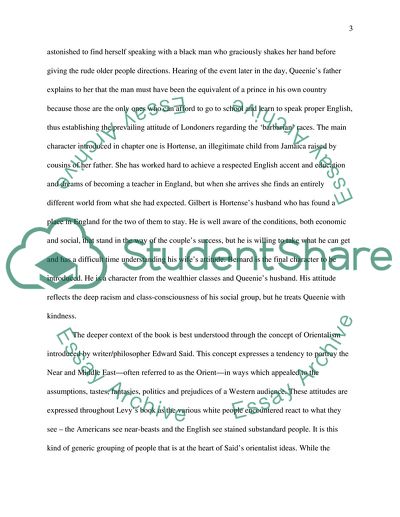Cite this document
(Small Island as Exploration of the Other Essay Example | Topics and Well Written Essays - 3000 words, n.d.)
Small Island as Exploration of the Other Essay Example | Topics and Well Written Essays - 3000 words. Retrieved from https://studentshare.org/literature/1743864-how-is-london-andor-london-life-represented-in-andrea-levys-small-island
Small Island as Exploration of the Other Essay Example | Topics and Well Written Essays - 3000 words. Retrieved from https://studentshare.org/literature/1743864-how-is-london-andor-london-life-represented-in-andrea-levys-small-island
(Small Island As Exploration of the Other Essay Example | Topics and Well Written Essays - 3000 Words)
Small Island As Exploration of the Other Essay Example | Topics and Well Written Essays - 3000 Words. https://studentshare.org/literature/1743864-how-is-london-andor-london-life-represented-in-andrea-levys-small-island.
Small Island As Exploration of the Other Essay Example | Topics and Well Written Essays - 3000 Words. https://studentshare.org/literature/1743864-how-is-london-andor-london-life-represented-in-andrea-levys-small-island.
“Small Island As Exploration of the Other Essay Example | Topics and Well Written Essays - 3000 Words”, n.d. https://studentshare.org/literature/1743864-how-is-london-andor-london-life-represented-in-andrea-levys-small-island.


